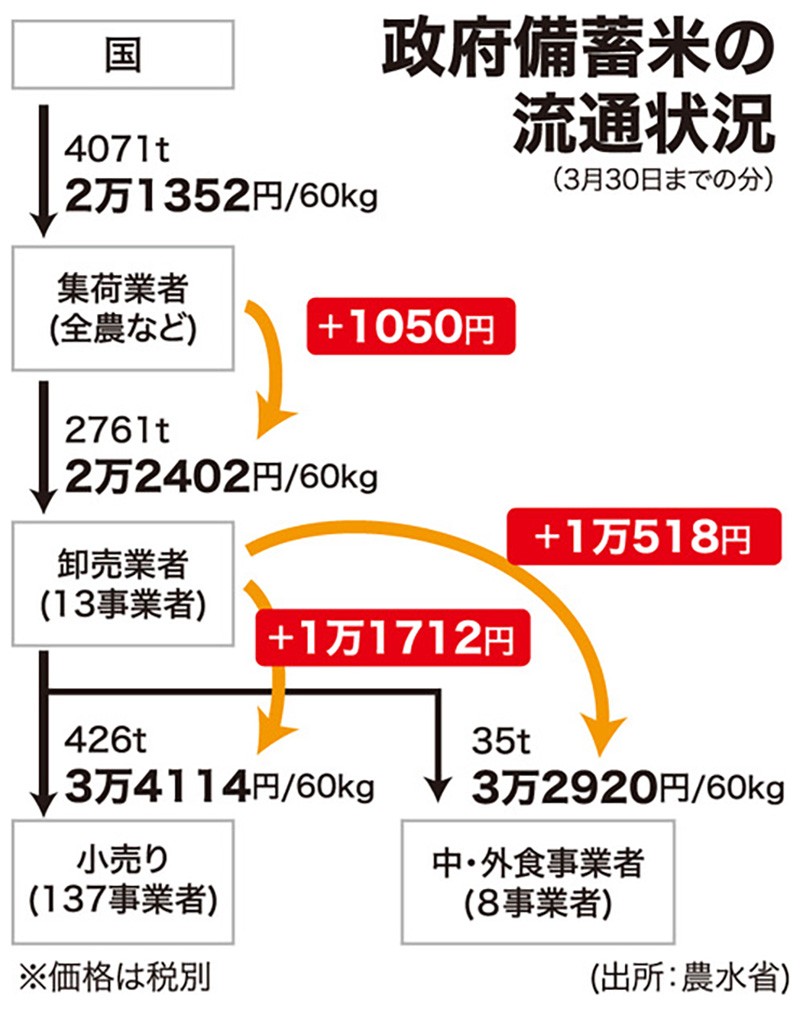Japanese Rice Reserves: JA's Financial Strain Raises Concerns
Japan's agricultural landscape is facing a significant challenge: mounting financial strain on the agricultural cooperative, JA (Zenchu), due to its vast rice reserves. This situation raises questions about the future of Japan's rice farming industry and the government's rice policy. The sheer volume of stored rice, coupled with declining consumption, is creating a critical financial burden for JA, threatening its ability to support farmers and impacting the overall stability of the agricultural sector.
The Weight of Rice: Understanding the Surplus
Japan's rice self-sufficiency policy, aimed at ensuring national food security, has resulted in substantial rice surpluses. The government's price-support program guarantees a minimum price for rice, leading to increased production and a continuous buildup of reserves managed primarily by JA. This surplus, however, translates into significant storage costs and potential losses due to spoilage and quality degradation.
Key Factors Contributing to the Crisis:
- Declining Consumption: Changing dietary habits and a shrinking population have led to a decrease in rice consumption, exacerbating the surplus. Younger generations are increasingly opting for more diverse diets, impacting traditional rice consumption patterns.
- High Storage Costs: Maintaining large rice reserves necessitates substantial investments in storage facilities, pest control, and other related expenses. These costs directly burden JA's finances, straining its already limited resources.
- Government Policy: While intended to support farmers, the current government price-support policy inadvertently contributes to the overproduction and subsequent surplus. A re-evaluation of the policy's effectiveness is crucial.
- Global Market Competition: The increasing availability of imported rice, often at lower prices, puts further pressure on the domestic market and reduces the demand for domestically produced rice.
JA's Financial Struggle and its Implications
The burden of maintaining these massive rice reserves has placed a significant strain on JA's finances. This financial instability poses several critical implications:
- Reduced Support for Farmers: JA's primary role is supporting its member farmers. Financial difficulties may limit its ability to provide crucial services like loans, technical assistance, and marketing support.
- Potential for Farm Consolidation: Farmers facing financial hardship might be forced to consolidate or abandon their operations, impacting rural communities and potentially leading to a further decrease in domestic rice production.
- National Food Security Concerns: While the initial aim was to ensure food security, the current situation paradoxically threatens it. The financial instability of JA could compromise the long-term viability of domestic rice production.
Potential Solutions and Future Outlook
Addressing this crisis requires a multi-pronged approach involving government intervention, market reform, and innovative solutions.
Potential Solutions:
- Policy Reform: The government needs to review its rice price-support policy, considering market-based mechanisms that balance farmer support with sustainable production levels. This might include gradual price deregulation or implementing a quota system.
- Diversification of Crops: Encouraging farmers to diversify their crops and explore alternative income sources can reduce reliance on rice alone, improving financial resilience.
- Waste Reduction Strategies: Implementing strategies to minimize rice waste throughout the supply chain, from production to consumption, can help manage the surplus effectively.
- Investing in Value-Added Products: Processing rice into value-added products, such as rice flour, rice bran oil, or functional foods, can increase its market value and reduce reliance on raw rice sales.
The future of Japan's rice industry depends on finding sustainable solutions to this complex problem. A collaborative effort involving the government, JA, farmers, and consumers is crucial to ensure the long-term viability of this vital sector. The current situation serves as a critical reminder of the need for adaptable and market-oriented agricultural policies. Failure to address the issue promptly could have far-reaching consequences for Japan's food security and rural economy.
Keywords: Japanese rice reserves, JA (Zenchu), rice surplus, Japanese agriculture, rice policy, food security, agricultural economics, price support, rice consumption, rural economy, farm consolidation.
